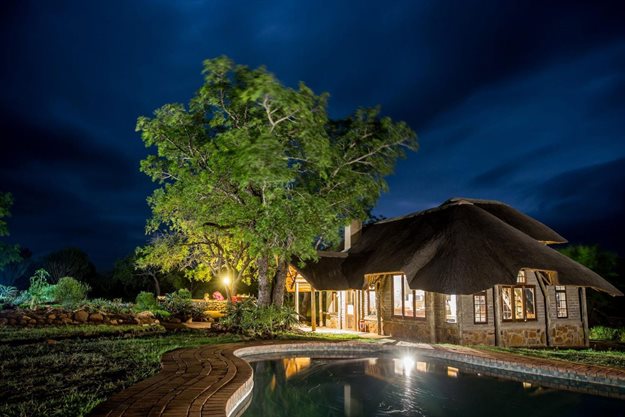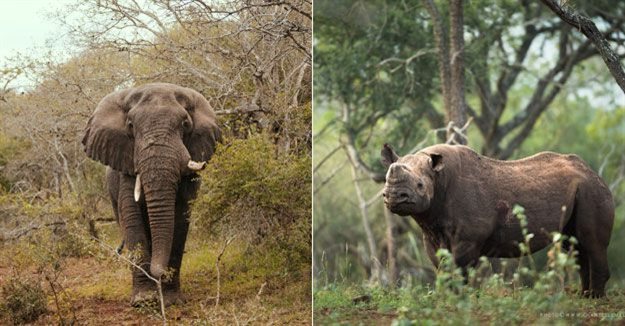
"This is a flagship, long-term project that has required years of support and training to become successful as a Big Five game reserve that is both owned and managed by the community. There are several game reserves in the region owned by communities, but these are hired out to the private sector," explains Roelie Kloppers, the project executant and head of the KwaZulu-Natal-based Wildlands, a programme of the WildTrust.
From the outset Somkhanda was funded by the WWF Nedbank Green Trust and co-managed by Wildlands and the Emvokweni Community Trust (ECT), which represents the Gumbi community. "We have worked with the Gumbi community for the past 10 years to create the 12,000-hectare Somkhanda out of their 26,000-hectare successful land claim," says Kloppers. The project goal is to create a full game offering, upgrade the tourism facilities and train community members to manage all aspects of the reserve.
As is the case with all Big Five reserves, the training, running and security costs are high. Somkhanda receives additional funding from the German government and Friends of Somkhanda – individual donors who 'adopt' lions and rhinos to bring in money. To further raise funds the reserve hosted the 100km Somkhanda Challenge – its first mountain biking event – from 1 to 3 November 2019, at a cost of R5,000 per rider, including accommodation. The aim is to develop this into a top event on the mountain biking calendar.
"Now that the conservation and ecological side is thriving, we are concentrating on the governance side," Kloppers explains. In 2016 the WildTrust and the ECT created a joint management board, with the aim of completely moving the board to the ECT in a few years' time, when they would manage all aspects of Somkhanda – from the reserve management to marketing and tourism.
A four-hour drive from Durban and a six-hour drive from Johannesburg, Somkhanda offers a self-catering lodge (Somkhanda Lodge) at R450 per person per night, and four tented camps (Marula, Zebra, Teacher and Scoita) at approximately R250 per person per night. Bush walks and wildlife monitoring are also offered.

The Gumbi community of approximately 20,000 people receives 10% of all tourism money from the reserve, which the ECT allocates for schools, creches, clinics, cattle dipping programmes and small-business opportunities.
The reserve currently employs 52 people from the community, and all short-term contracts, such as for alien bush clearing, are taken up by the community. The Department of Environment, Forestry and Fisheries funds the salaries of the game guards through its Environmental Monitors Programme.
The reserve’s manager is Nkosinathi Gumbi who started two years ago after being trained at the Southern African Wildlife College near Kruger National Park, another WWF Nedbank Green Trust funded initiative. To advance his management skills and experience, Nkosinathi currently works alongside Wildlands manager Meiring Prinsloo.
Community member Nathi Gumbi, who has championed Somkhanda from the outset, is the strategic manager for the Gumbi and neighbouring community. He manages all the projects and governance issues outside of the reserve. Nathi explains that to supplement the community income from the reserve in this poverty-stricken area, they are establishing a network of mainly women farmers and micro enterprises.
The farmers are growing crops like cassava and sorghum and vegetables, including indigenous vegetable like the madumbi (indigenous potato). The focus is on climate smart agriculture that uses less water and no pesticides. The micro enterprises include craft businesses, home stays, chicken farms and spaza shops which collectively create a micro-economy to keep the money in the area so that step by step it can develop and become more prosperous.